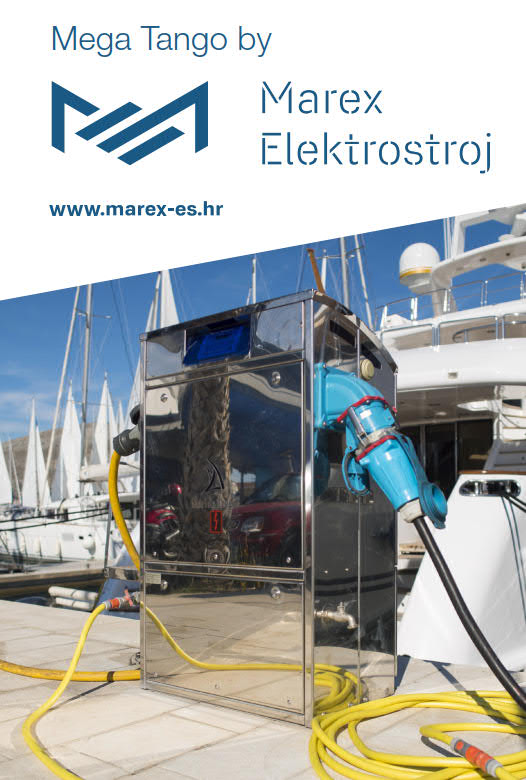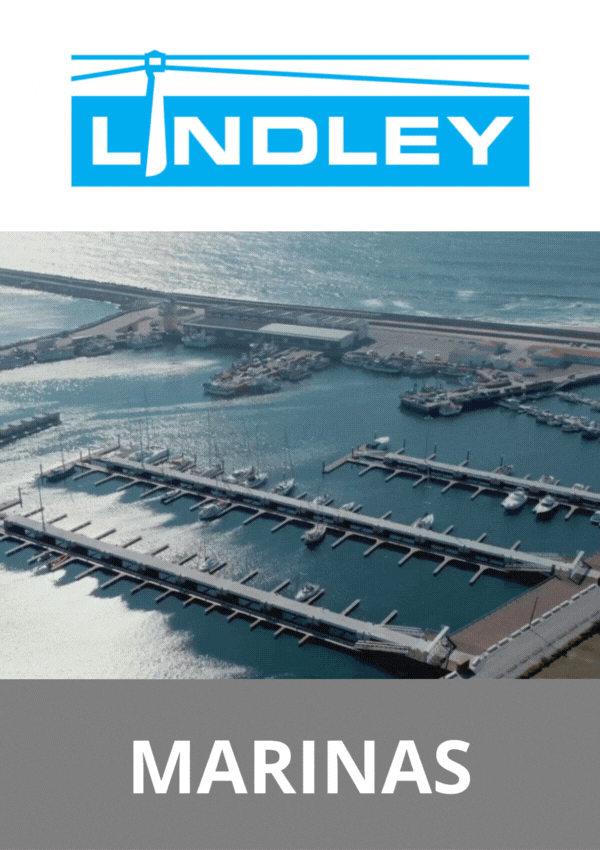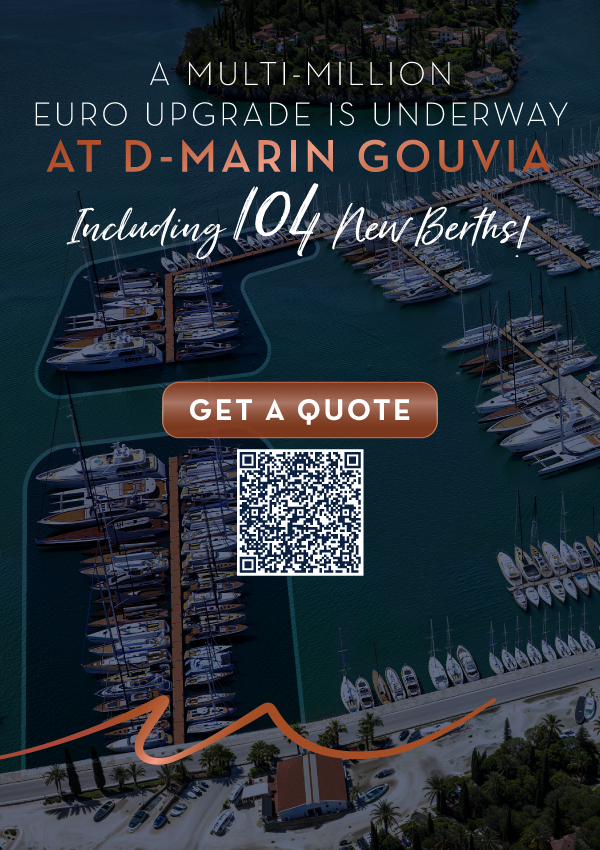Pioneering inclusion: boatfolk’s accessible boating vision
boatfolk, a private equity-backed UK marina group created from the 2019 merger between established marina chains Quay Marinas and Dean & Reddyhoff, offers a network of facilities throughout the British Isles. Group commercial director, Dominic Zammit, challenges the industry to rethink marina management by prioritising people. He talks to Mel Symes.
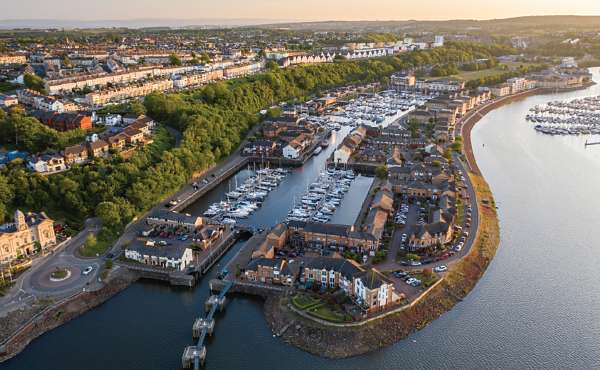
Penarth Marina in Wales is the most sheltered and secure location in Cardiff Bay.

Dominic Zammit: “Our current end goal is being the very best boating company in the UK.”
Q: Can you describe how you’ve worked to address this gap?
A: We’ve worked hard to position ourselves as the accessible marina group that does everything for the benefit of the boater. This has been a natural build on the Quay Marinas and Dean & Reddyhoff legacy of being all about the people; all about the boater. This was the essence of the feedback from the industry prior to the merger and has followed on as the vision for boatfolk, now and for the future.
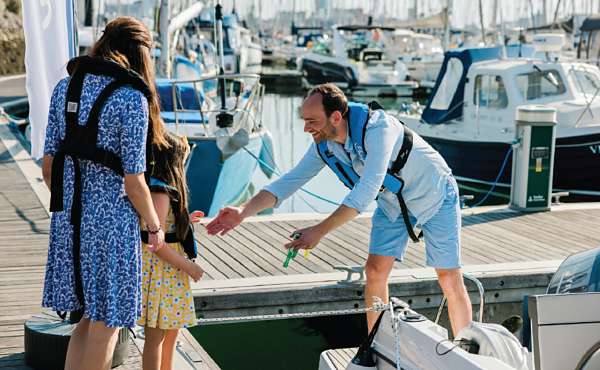
Family boating at Haslar Marina.
We run a programme called #boatgen for young people from 11-21, where we provide awareness about how to get into boating and help remove the barriers - providing kit, training and access, all heavily subsidised or free of charge. We run outreach with schools and partner with charities like the Andrew Simpson Foundation and the Ellen MacArthur Cancer Trust, as well as sea schools around the UK, to give young people the chance to get out on the water for the first time – particularly those from minority groups or disadvantaged backgrounds. To increase the chances of long-term engagement, part of our focus is on creating pathways. We try to give each young person who comes through a #boatgen participation event access to other aspects of the industry – whether that’s apprenticeship opportunities or direct hire. The Andrew Simpson Foundation also offers the means to obtain diploma qualifications or take part in training instruction programmes.
All this, of course, serves our commercial strategy since, ideally, in 20 years or so, having had their first taste of boating via boatfolk, we hope to be their first choice when they look to purchase their first boat.
Q: What about your other services: boatpoint, boatcare and Beyonder?
A: The first step for a new boater isn’t usually to locate a marina, but rather to find a boat they want to buy. Through boatpoint, we currently sell more boats than any other broker in the UK, so chances are that they’re going to buy their first boat from us. We launched our boatpoint brokerage business in 2020 and have been on a growth mission ever since. We now have eight offices around the UK, positioned in strategic points where there are brokerage opportunities and market potential. The natural synergy between our marinas and our brokerage offices has been very successful.
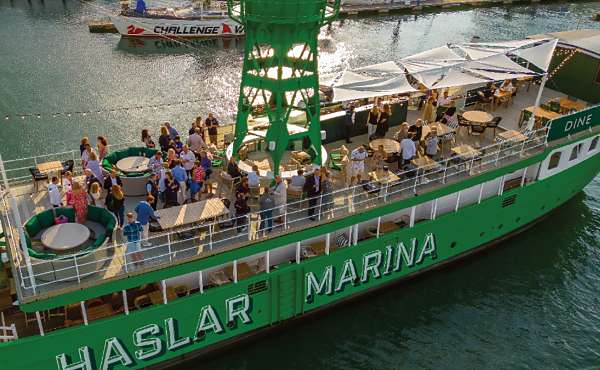
The Lightship floating restaurant is one of many attractions at Haslar Marina in the historic maritime heart of Portsmouth Harbour.
Key to our success is the fact that the boatpoint brand is underpinned on the same philosophy of the wider boatfolk family: accessibility and approachability. The brokerage market was ripe for innovation when we introduced boatpoint and we were able to benefit from the surge of interest in buying boats fuelled by COVID. Since then, we’ve endeavoured to reduce any friction on the boat-buying journey. Our aim is to create a seamless transition from the boat purchase to the marina berth and to deliver a consistently rounded and relaxing customer experience.
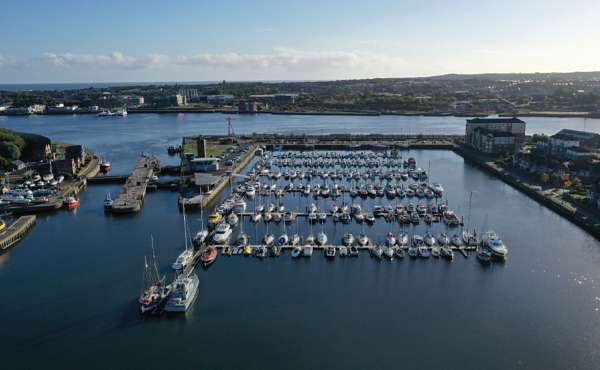
Royal Quays (North Shields, England).
Additionally, we’re very active online; almost all our marketing is digital. Within the marinas we bolster the destination-related attractions with our own restaurants and hotel rooms, using them as gateways into the other parts of the boating site. These various layers then contribute to extending awareness of boatfolk and encouraging people to give boating a go.
Q: No hurdles?
A: Oh goodness, of course!! We’ve found entering the world of hospitality a huge challenge, particularly in a post-COVID, weakened economy, and are moving towards a process of re-tenanting our existing restaurants. Ultimately, whilst restaurants are absolutely central to enhancing the marina experience, we recognise that the marina business is not the hospitality business. We’ve invested some £7 million in our restaurants over recent years and that’s really brought up the standard in each location.
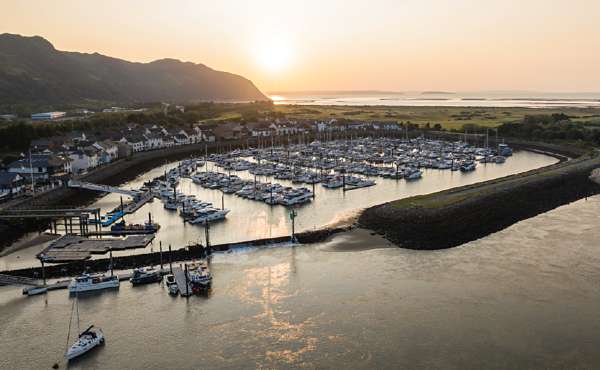
Conwy (North Wales)
New boat sales have also been tricky, but this reflects the status quo globally, with a softening boat sales market post-COVID and the economy driving a reluctance to spend on new boats. On the other hand, brokerage of second-hand boats remains stable – so this is where we’re currently consolidating our efforts.
Q: How else have you been tackling social sustainability?
A: Beyond trying to make boating more accessible to different sectors of society, we’ve tried to ensure that we’re recruiting from as diverse a background as possible. We cast our net as wide as we can, with multiple people involved in the recruiting process to avoid a biased outcome. We’ve spent a lot of time organising training and education for our team around diversity and inclusion and this is reinforced with annual refresher training. We’ve also hired a People and Culture manager specifically to help with this shift in attitudes and behaviours and to help us move in a new direction. We’re engaging in the marine conversation at grassroots level via our communications strategy and try to provide good examples and inspiring leadership. Our staff demographic could do with improvement but I’m happy to say that our first #boatgen youth sailing team has an all-female crew!
Q: What about environmental sustainability?
A: From individual environmental stewardship initiatives in each marina, to a new five-year partnership set to start next year which will map marine biodiversity in and around marinas in the UK, we are tremendously active in this space. We are a supporting and founding partner of the Studland Bay Marine Partnership that involves the RYA, Natural England and the National
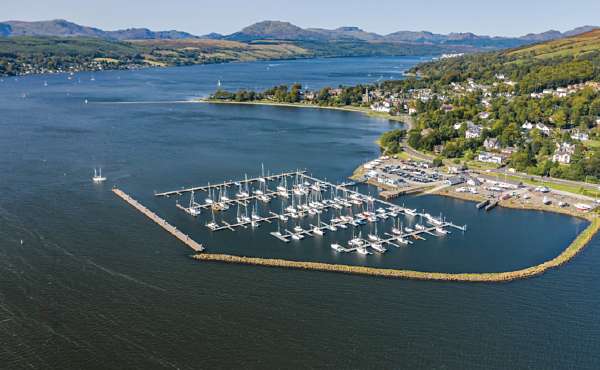
Rhu Marina (Firth of Clyde, Scotland).
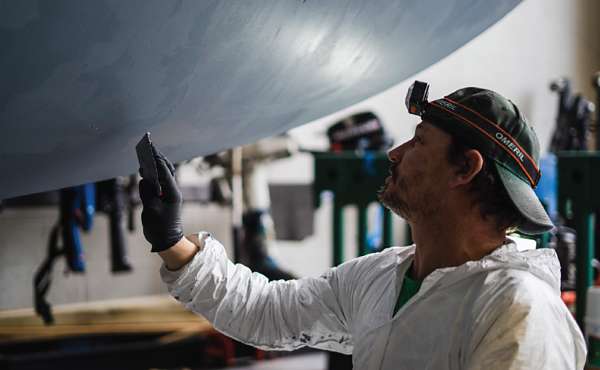
Services at Portland’s boatyard are examples of boatfolk’s extensive boatcare service for maintenance and repair.
Q: Would you say that as a result of your work, communication within the industry has changed?
A: I’d like to think that we have managed to create a shift in how marinas now promote their services. Previously marinas would predominantly showcase their pontoons, boat capacity and hoist size, but now the conversation moves more around sustainability, community engagement events, and what is being done to support the next generation of boaters. There’s been a palpable transformation, and I believe that boatfolk’s vision has been a catalyst for that with other marina chains following suit.
Does boatfolk have any plans to expand overseas?
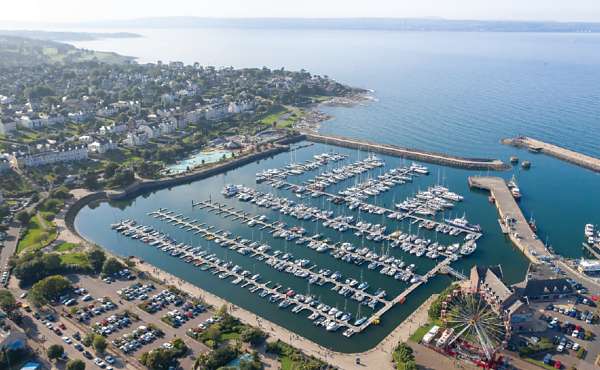
Bangor Marina in Belfast Lough, Northern Ireland, is ideally located for access to the town centre and to excellent cruising and fishing waters.
“Our current end goal is being the very best boating company in the UK. Our point of difference is that we’re the only truly national marina group. Strengthening that position and making sure that wherever you are, you can get to a boatfolk marina - this is what makes us an accessible brand.”

